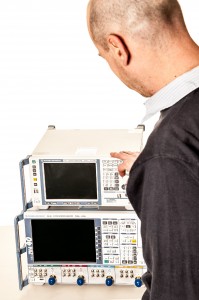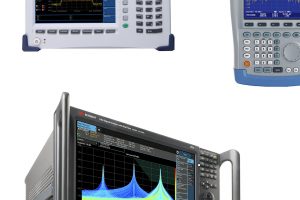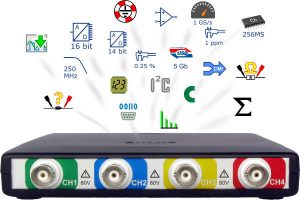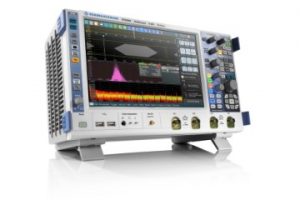
Many suppliers offer remanufactured or refurbished instruments which are hard to differentiate from their new counterparts.
At the other end of the scale, there are countless dealers and amazing ‘bargains’ to be found on eBay. Most purchasing managers will have received emails with a link to an ‘unmissable bargain’ found online, and a request to snap it up before someone else does.
How do you decide which of these are genuine opportunities to acquire a valuable instrument at an attractive saving and which are best avoided?
Just like buying a second hand car, there are ten key factors to separate a bargain from a white elephant.
It sounds obvious, but will the equipment offered fully meet the requirement?
It is imperative that the specification of the used instrument fully addresses the need. Slight differences in options or software might make a radical difference to functionality.
The most reliable resellers will offer applications engineering support. If it fully meets the specification that’s a good starting point, but if it’s under-specified and can/has to be upgraded then you may need to spend far more than the initial purchase cost or even end up with something unusable.
What’s included in the purchase?
Do you know what cables and accessories you require and will the bargain system ship with all of these? Carrying cases, manuals and sometimes even power leads may be deemed “extras”. If the equipment uses consumables or parts which require regular replacement (e.g. batteries), are any supplies included? Does the price include transportation costs, taxes and import duties. Who pays for any transit insurance?
Quality checks and calibration
A reputable supplier will have a rigorous checking process to ensure the equipment you buy is in excellent condition. In most cases you will also require the instrument to be calibrated. This is the best way of ensuring it operates to the manufacturer’s specifications. The quality will be reflected in the price, but that old adage “you get what you pay for” is probably true in this case.
What guarantee and support does the supplier offer?
Many suppliers offer warranties that guarantee their certified pre-owned instruments are fit for purpose. If anything goes wrong or you are dissatisfied you’ll have rights of return. Before you sign the purchase order for the online bargain check the details of any guarantee and, if possible, if it is genuinely what it appears to be. Some suppliers offer ongoing technical support and this is particularly valuable if you are not familiar with the equipment.
Can you be confident in the supplier?
Is the supplier going to complete the sale and then disappear off the face of the earth? The used market is volatile and suppliers come and go. If the supplier asks for payment in advance you need to be 100% confident they will keep their side of the bargain and deliver your equipment. If you have a problem after delivery, for example the items arrive damaged or incomplete or are the wrong equipment, how confident are you that they will resolve it? If they offer a year’s warranty this might give apparent comfort, but it’s worthless if they go bust or disappear a month after the sale.
Does the equipment exist?
This might seem a wacky question, but has the supplier sold you something they actually own? The recession has hit dealers in used equipment very hard and it is increasingly unusual for them to hold stock in the hope they are going to secure an order, as they just don’t have the capital necessary to hold a large inventory. More often than not they are selling you something they believe they can source at a lower price than they are offering to you. Ask if the item is in stock and check their provenance. An ex-demo or ex-rental asset is likely to be of a high specification and to have been well-maintained. If the equipment is “vapourware” it is wise to look for alternatives.
Is it upgradeable?
If your requirement is likely to change over time, check to see if the equipment can be upgraded. If not it might be worth spending a little more on something which is more future-proof.
Does the supplier offer trade-ins?
There probably isn’t a single company that doesn’t own a piece of test equipment that it no longer uses. Most resellers of test equipment also buy it. Can you use assets sitting in a store cupboard somewhere to trade in and reduce your purchase cost? You could even end up in credit. If the supplier offers trade-ins, you may also be able to trade up the equipment you are buying now in the future if necessary. This may be an important consideration.
Buying used because you’re strapped for cash?
Some companies offer financial solutions, such as payment over time or leasing of used equipment, so check what other options are available to you if finance is the driving consideration.
Look at alternatives to ownership.
Before buying, check the alternatives. Test equipment is getting more sophisticated. This means that it is generally getting more expensive and at the same time becoming obsolete more quickly. Couple this with the fact that companies are increasingly looking to get as many assets as possible off their balance sheets and the alternatives to owning start to look quite attractive. Depending on the timeframe over which the equipment is to be used, rental or operating leases should be investigated before deciding the best option.
Instruments sourced from a manufacturer’s recognised programme or a reputable source, such as Microlease’s recently introduced Certified Pre-Owned channel, can provide an alternative to buying a new instrument at a significant saving and purchasing managers can and should investigate this as part of their requisition process. However there are risks associated with buying unless both the equipment and its source have been thoroughly verified.
Writer is George Acris, director of marketing at Microlease
 Electronics Weekly Electronics Design & Components Tech News
Electronics Weekly Electronics Design & Components Tech News




Buying used test equipment is good in a couple of situations, but it’s not when the equipment is not upgradeable. Before you buy test equipment make sure you scratch that off your list and the move on with the others. You don’t wanna end up with an old equipment.